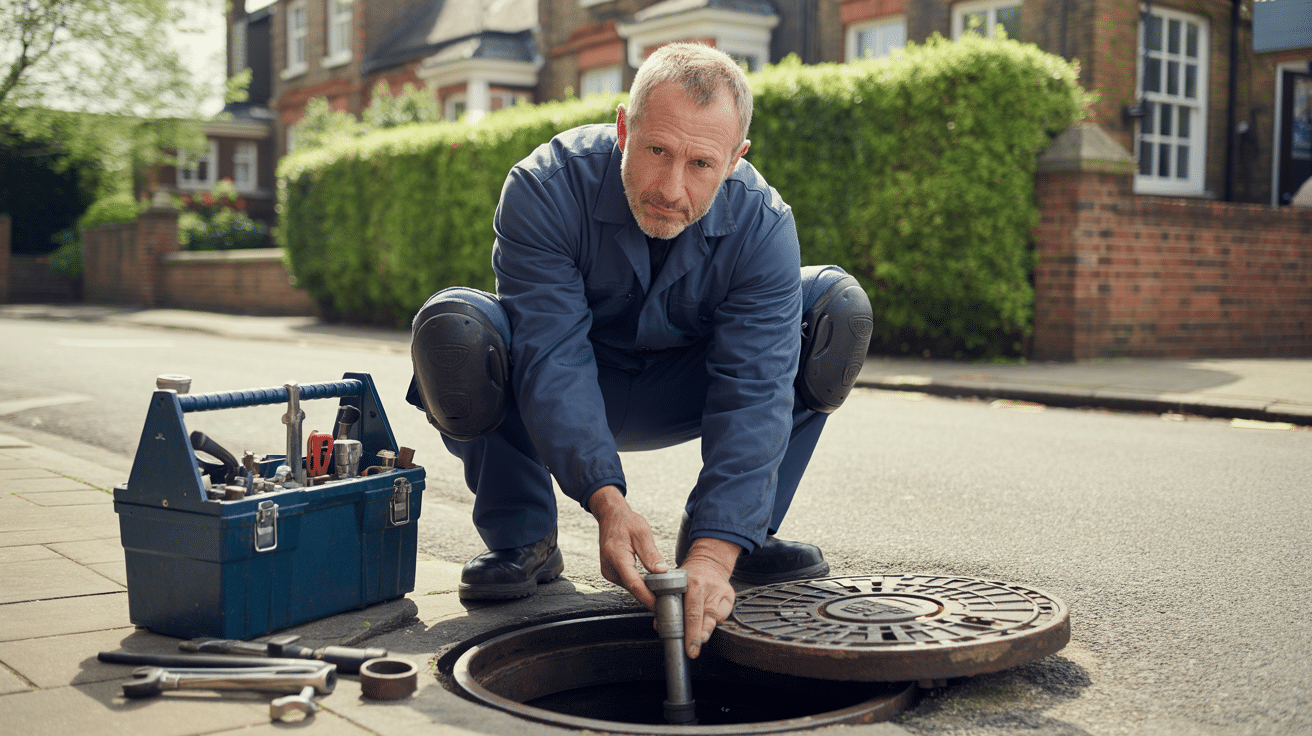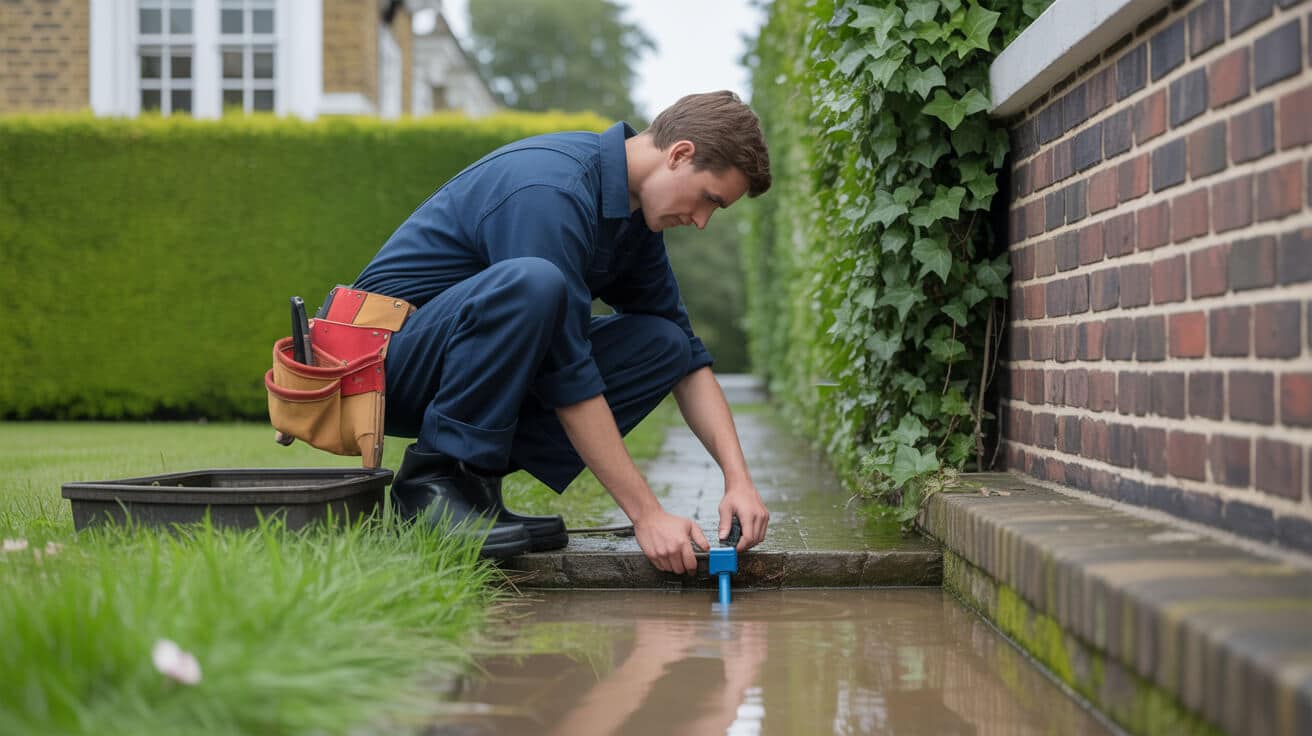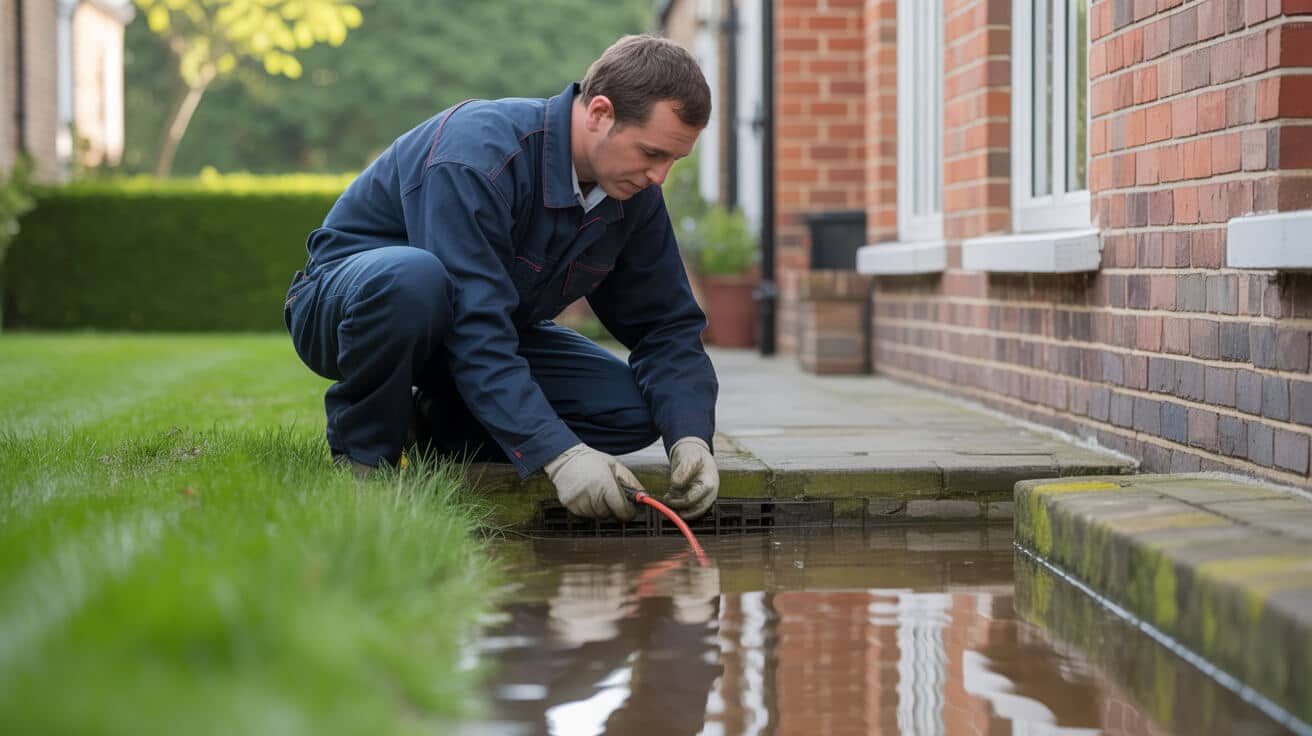 A Homeowner’s Guide to Gas Appliance Safety Checks
A Homeowner’s Guide to Gas Appliance Safety Checks
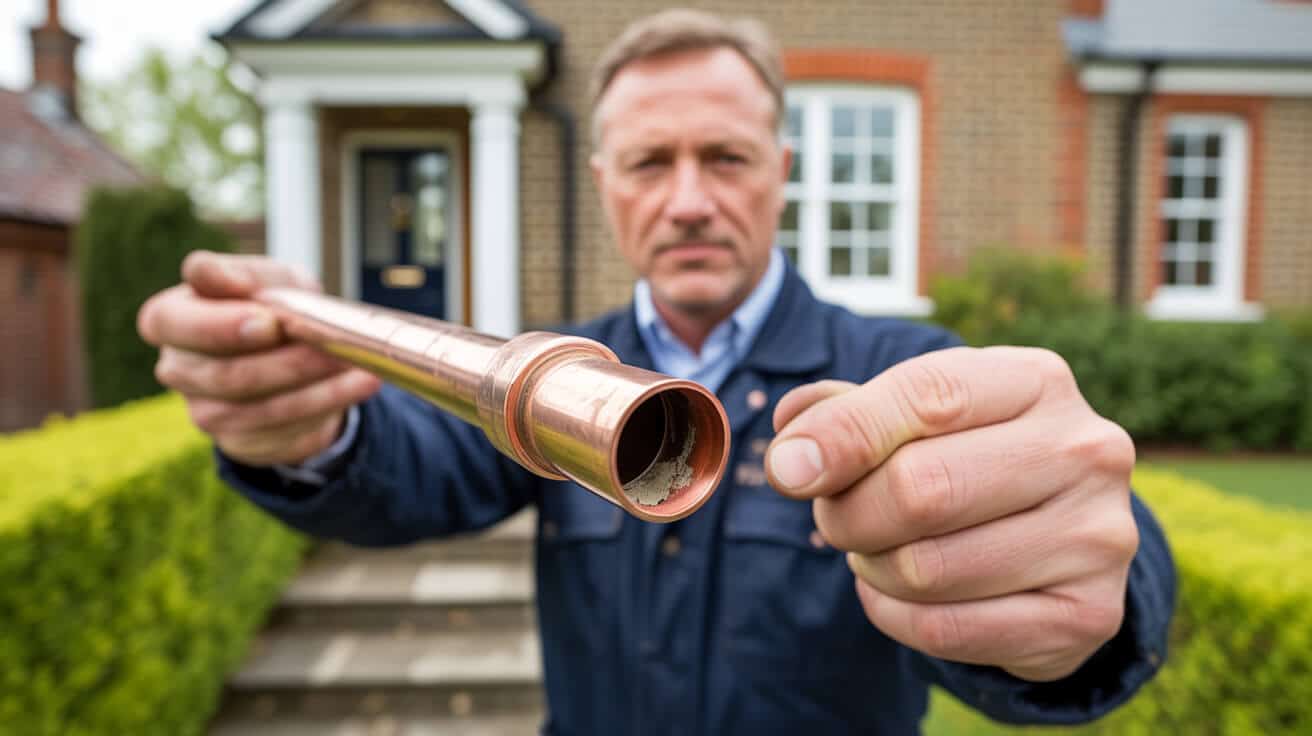
Why Annual Gas Safety Checks Are the Shield You Don’t See—Until You Need It
Safety isn’t always about what’s visible. Gas systems deliver comfort and reliability for millions, but their greatest threat is precisely what you can’t detect: a hidden leak, a fault inside a sealed appliance, or a gradual rust patch behind a cupboard. Most owners and landlords only realise the importance of a gas safety check when paperwork is urgently requested—or when something, somewhere, goes seriously wrong. Yet the properties that quietly pass every inspection and hold their value year after year are managed by those who build safety into routine, not just emergencies.
The value of a safety check is measured by the disasters you never see.
The Invisible Risks Living in Every Home
No gas system, regardless of age or brand, is immune to gradual decline or unexpected failure. modern boilers routinely pass checks one year, only to slip out of spec the next—most defects aren’t dramatic. UK data shows over 200 carbon monoxide-related deaths every decade, with hundreds of non-fatal poisonings and gas emergencies reported annually (ONS 2022). Worse, carbon monoxide is tasteless and invisible. You’ll never smell a slow leak, and symptoms may be brushed off as fatigue or a cold until it’s too late.
Uninspected or overdue gas systems foster other unseen risks: voided warranties, insurance that won’t pay, or a refusal by buyers and mortgage lenders down the road. Annual checks aren’t just paperwork—they underpin your property’s safety, market value, and your peace of mind.
Systematic Inspections Outperform Good Intentions
The difference between protection and wishful thinking is habit. Having your heating and appliances checked to a documented, professional standard each year delivers security in ways you may not expect:
- Energy bill stability: Properly serviced appliances run at peak efficiency, using less gas across winter months ([Citizens Advice 2023](https://www.citizensadvice.org.uk/consumer/energy/energy-supply/problems-with-your-energy-supply/boiler-and-central-heating-care/?utm_source=openai)).
- Reduced breakdown risk: Routine checks catch failing components before costly outages—no late-night callouts or freezing surprises.
- Ready paperwork: Whether facing a home sale, insurance claim, or council audit, you’re always prepared with proof, not excuses.
That persistent calm you feel? It comes from knowing you did things the right way behind the scenes.
Who Actually Needs a Gas Safety Check—and Where Does the Law Draw the Line?
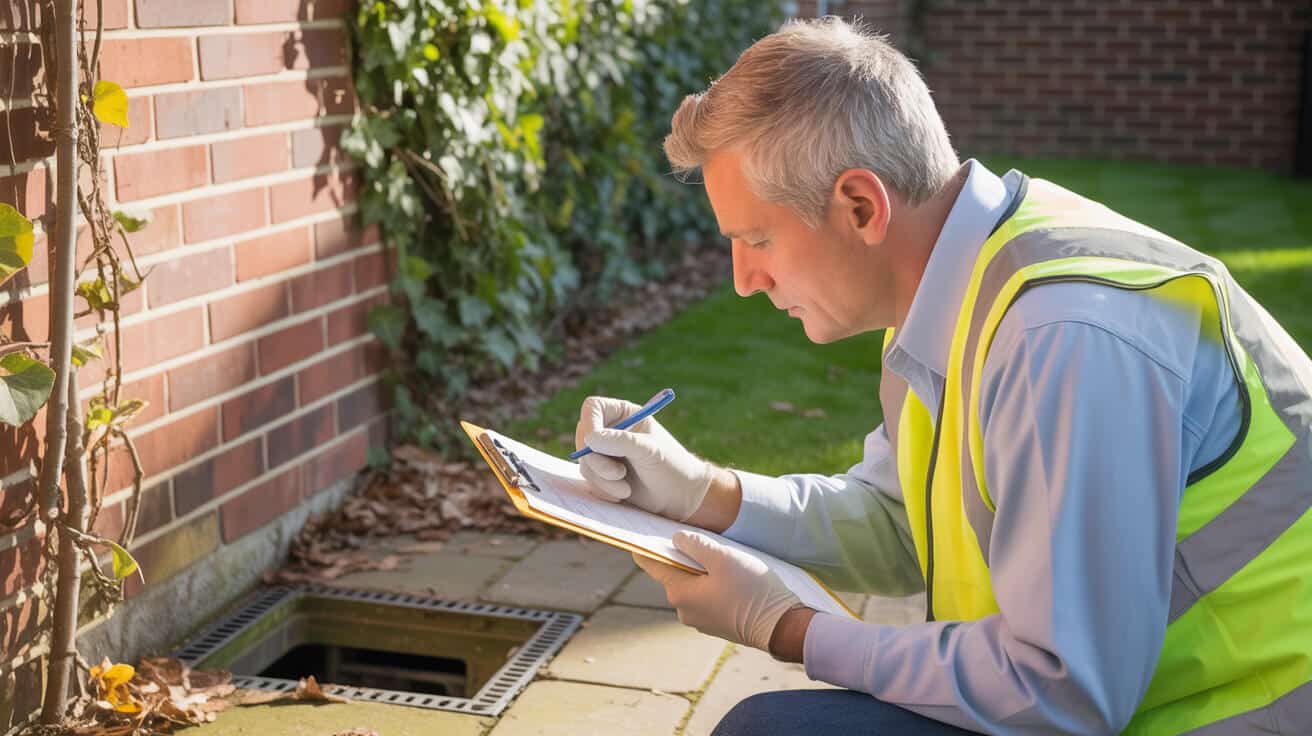
Homeowners, landlords, block managers—every group faces a different rulebook. Landlords and managing agents, however, stand in a legal spotlight: annual, professional checks are absolutely mandatory under UK law for every property they rent or manage. For private owners, the risk is different but just as real—neglecting checks can scuttle mortgages, slow sales, or void insurance when you most need support.
If your name is on the deeds or the lease, compliance rides on your diligence.
Landlords, Letting Agents, and the Compliance Burden
There’s no wiggle room: every rental must pass a yearly inspection by a Gas Safe-registered engineer, generating a valid CP12 certificate. No matter if the property is mid-tenancy or currently vacant, the requirement stands. Tenants must also receive proof of the latest check within 28 days—it’s their right, and the HSE enforces this strictly (HSE).
Neglect the process and you could face fines up to £6,000, may lose your letting licence for repeated failures, and—if a serious incident occurs—face prosecution or even imprisonment.
Homeowners: Paperwork May Be Optional, But the Risks Aren’t
Mortgages, sales, or insurance disputes quickly reveal the myth of “optional” checks. Lenders and buyers routinely demand recent service records for gas systems. Appliance warranties from manufacturers, and even most home insurers, stipulate annual services as a condition for claims. Forget a check, and a small lapse today might lock you out of financial support when problems appear.
Complex Situations: Communal Supply, New Instals, and Service Schedules
If you’re responsible for a building with shared heating or a communal plant room, the law expects clarity: who arranges the checks, and how is documentation shared across residents and leaseholders? For new boilers or appliances, first-year servicing is often mandatory to preserve the manufacturer warranty—cut a corner here, and longer-term coverage dissolves.
Gas Work: Why Only True Gas Safe Engineers Should Handle It
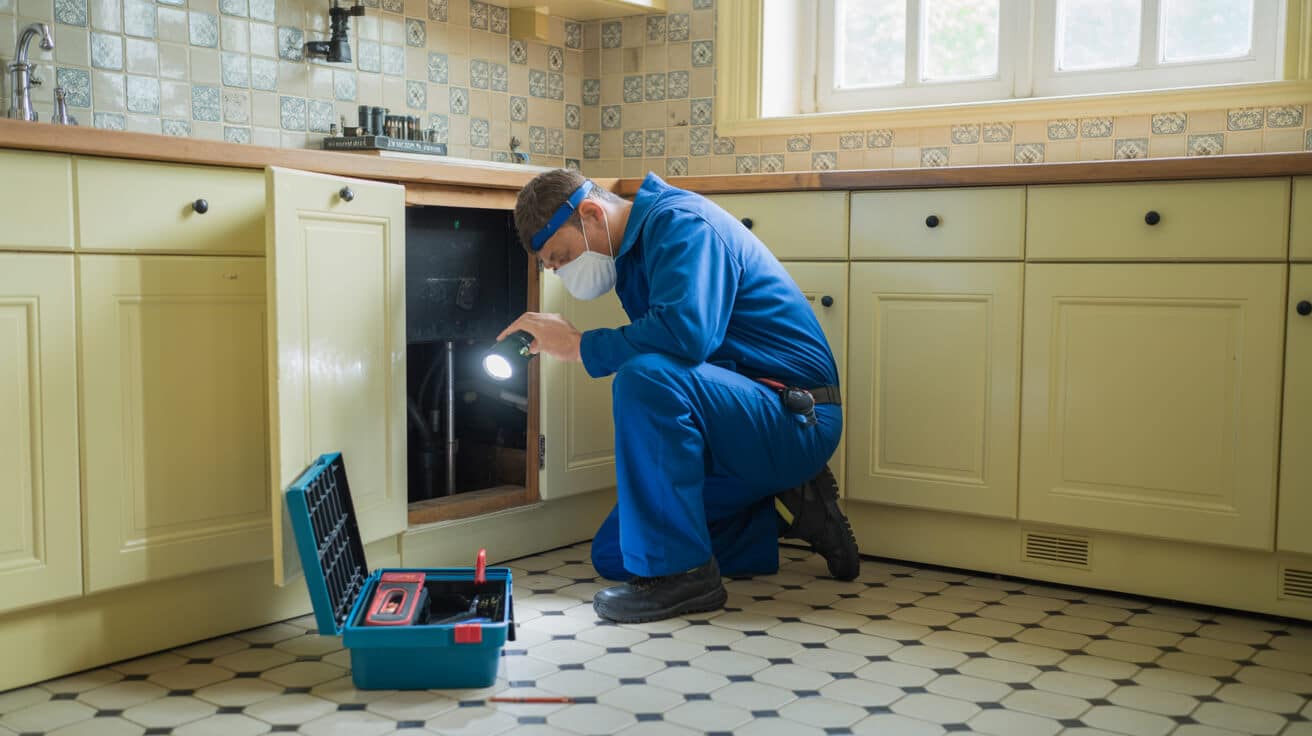
Credentials matter. Under UK law, gas work isn’t “DIY-friendly content” or a job for the local handyman, no matter how experienced in general property repairs they may be. The Gas Safe Register is the legal and professional dividing line, separating those who’ve proven their competence from those who have not.
The badge is not a trophy—it’s proof that lives, not just systems, are on the line.
What Verification Looks Like in Practice
A quick glance at branded van livery or a smiling profile picture doesn’t confirm real credentials. You need to see, and check, the Gas Safe ID card: it spells out which types of gas work that individual is permitted to complete—boilers, cookers, fires—each requires explicit certification. Cross-reference the registration number at Gas Safe Register in less than a minute.
If an engineer can’t show their card or is registered for a different appliance (common for new hires or service assistants), do not let them proceed. “Almost” certified means legally and practically exposed.
Realities of Poor or Illegal Gas Work
Systems that appear “fixed” after a quick visit by an unregistered worker often mask deeper dangers. Even well-meant repairs can hide faulty joints, bad flue connections, or incomplete combustion—issues that may take weeks or months to escalate into emergency failures or silent poisoning. Your insurance and warranty only stand if the engineer’s record is traceable and within legal scope.
What’s Actually Involved in a Professional Gas Safety Check?
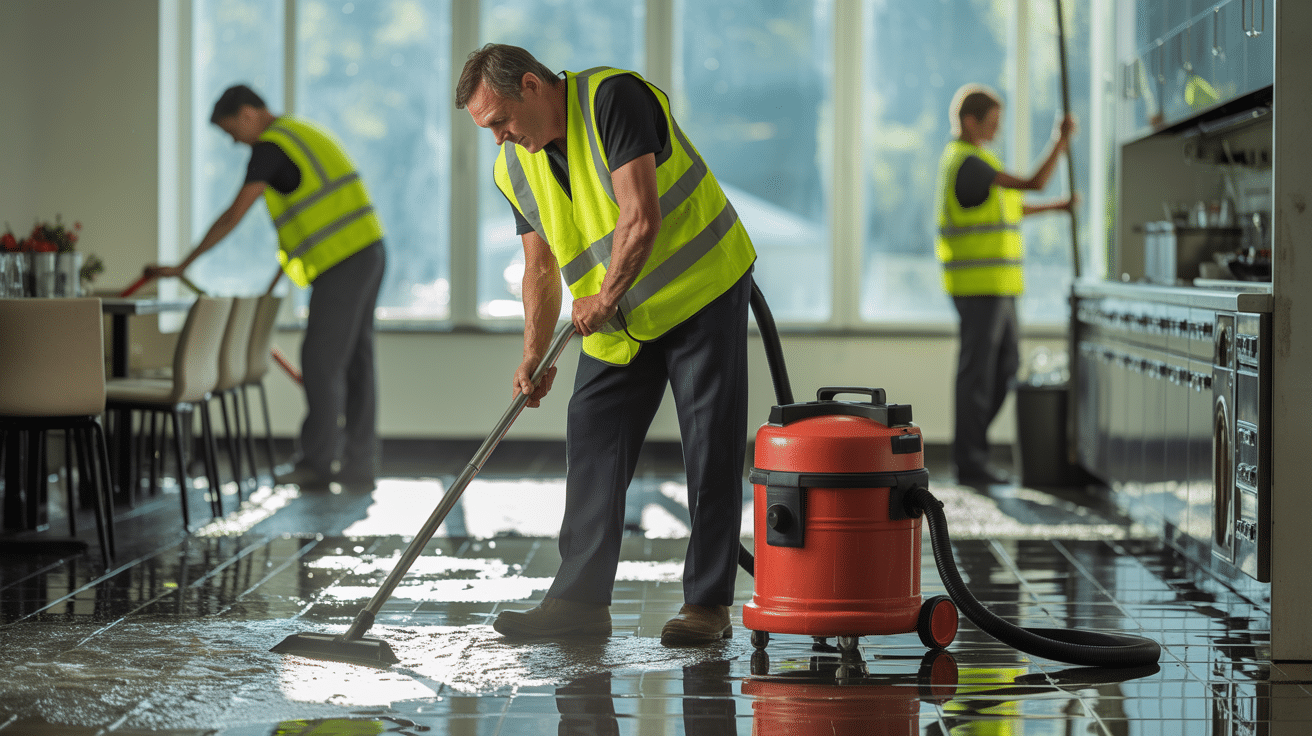
There’s a gulf between a DIY boiler check and a comprehensive legal safety inspection. Only a certified gas engineer can:
- Test combustion across all gas appliances with instruments (not just visual checks).
- Detect micro-leaks or pressure loss long before they become catastrophe-level faults.
- Check that every flue or vent is correctly fitted and safely expelling gases outdoors.
- Examine components—pressure relief valves, gas valves, overheat stats—for signs of age or malfunction.
A thorough engineer always leaves you with written proof of every appliance checked, every issue found, and every remedial recommendation.
The Value of Meticulous Paperwork
Don’t stop at “all done.” The gold standard is a logbook or digital certificate detailing appliance by appliance: registration number, findings, serials, date, engineer signature, and any recommended actions. Smart owners keep digital copies on hand for estate agents, letting managers, insurance providers, and future buyers.
Why so thorough? Because the day you’re asked for proof, you’ll need more than a vague “yes, we did it last year.”
Early Warning Signs: Stay Ahead of Trouble
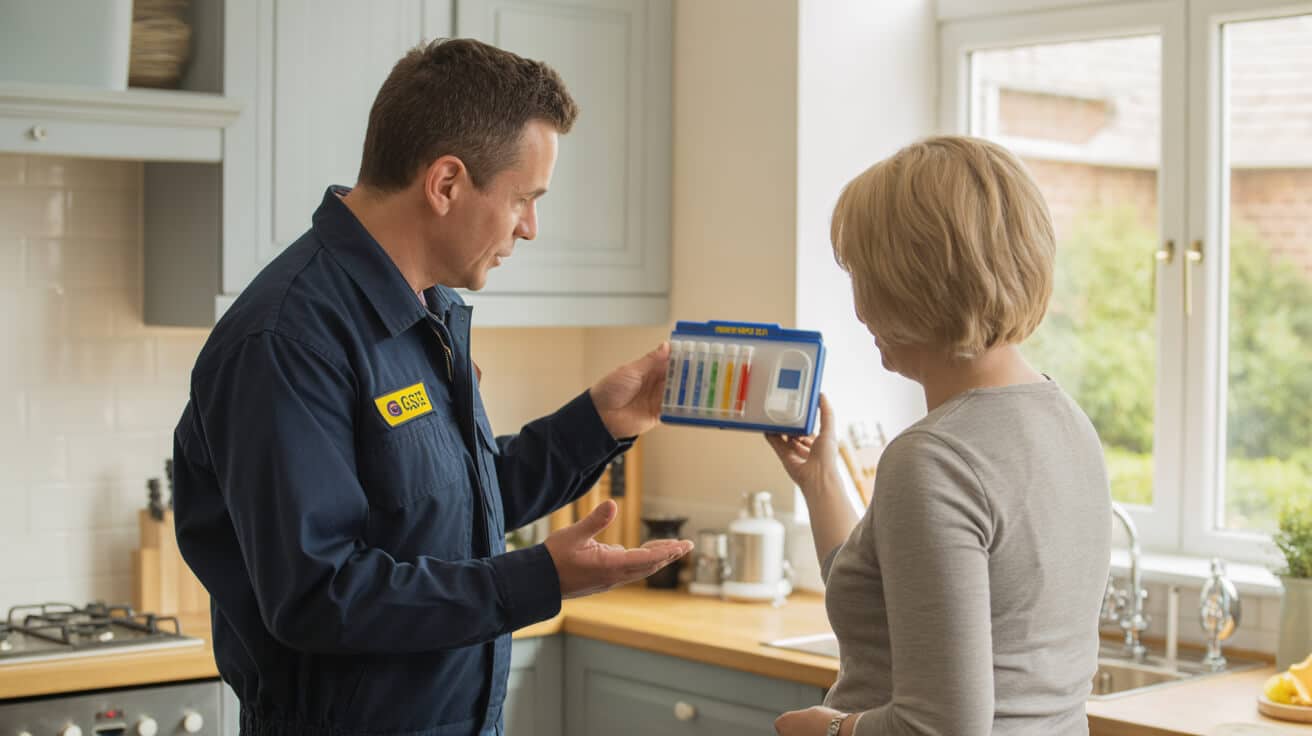
No gas system fails instantly—trouble usually announces itself, if you know what to look (and smell, and hear) for.
Key Signals That Demand Rapid Response
- Flame colour change: Blue is safe; anything orange, yellow, or flickering is not.
- Unexpected odours: A faint “egg” smell or sour chemical tinge signals a leak, as does condensation or black marking around appliances.
- Erratic performance: Boiler pressure dropping, constant pilot relights, or odd sounds always warrant a professional’s eye.
- Wellbeing issues: Headaches, odd fatigue, or unexplained dizziness indoors may indicate CO buildup. This is always a call for urgent action—ventilate, evacuate, and contact emergency services without delay.
If it feels off, trust your gut—owners who act on instinct avoid emergencies more often than you’d think.
No owner or landlord is expected to know every risk—but documenting your concern (with photo or description) before making a call can save critical time.
Why You Need a Carbon Monoxide Alarm, Not Just a Certificate
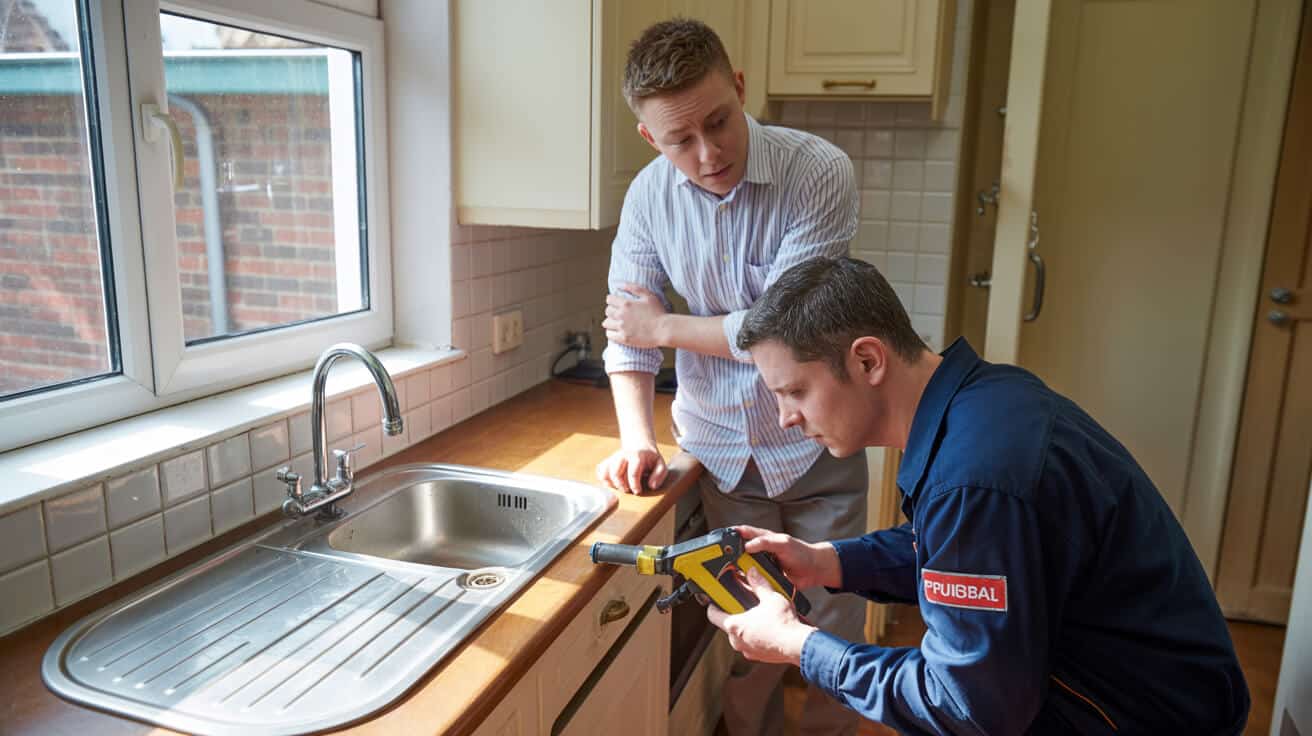
CO kills quietly, making detection by sense alone impossible. This is why, as of recent UK regulation, every rented home—plus all new builds and most property sales—now require a working CO alarm in every room with a gas appliance (Gov.uk).
How to Fit and Manage CO Alarms for Maximum Safety
- Correct placement: Mount at breathing height on a wall in the same room as each gas appliance. Don’t obstruct with furniture or hide behind doors or curtains.
- Regular testing: Hit the “test” button at least monthly. Write down expiry dates—alarms do not last forever and must be replaced strictly on time.
- Immediate action: Alarm sounding equals everyone outside, then emergency services called—CO acts within minutes, not hours.
An alarm costs little, but its absence can exact the highest price.
Installers and landlords alike: check this requirement every time you add or inspect gas appliances. Failing to comply doesn’t just risk a fine: it’s a reputational marker buyers and tenants spot instantly.
Skipping a Gas Safety Check: The Real-World Costs
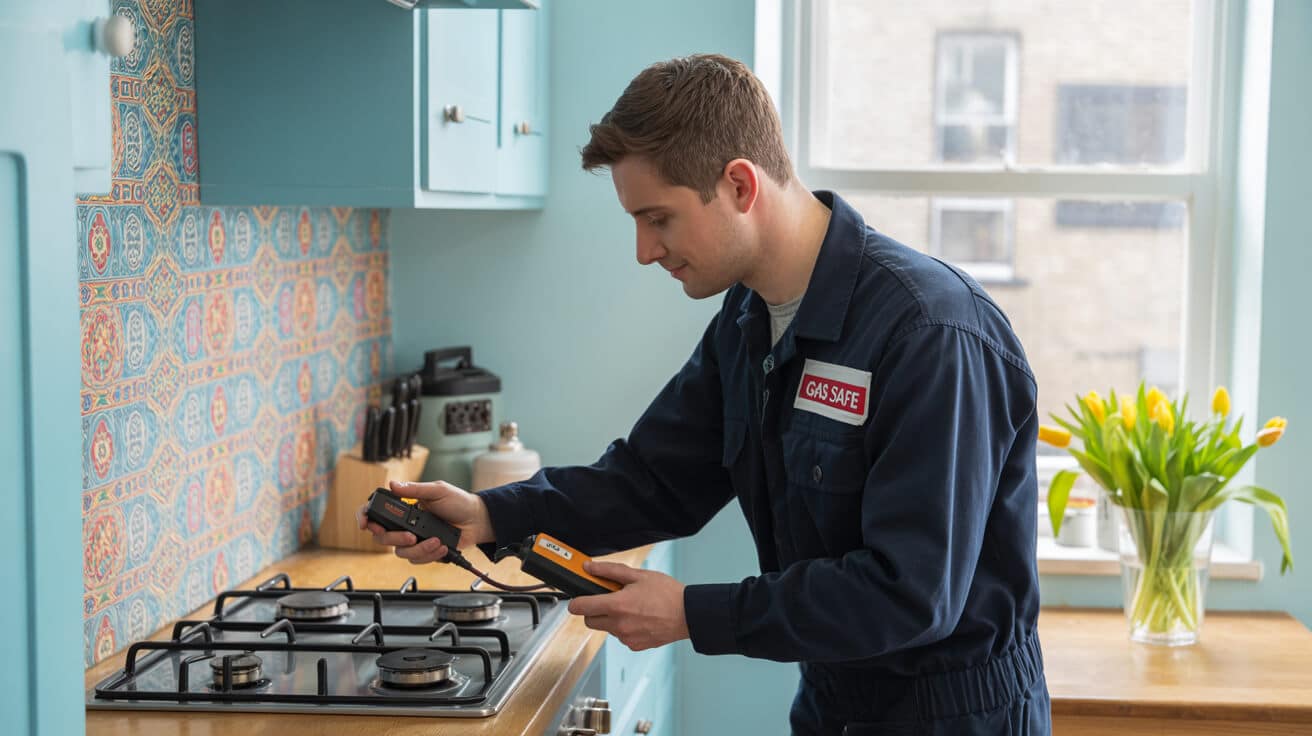
Life gets in the way. But delays and missed checks deliver a harsh reality check that isn’t just about inconvenience:
- Nullified insurance: Failure to produce up-to-date safety paperwork routinely voids home and landlord insurance for any gas-related incident.
- Licence or compliance loss: Letting licences often hinge on gas safety documentation; repeated failures put properties, income, and your rights at risk.
- Transaction traps: Buyers, solicitors and lenders are on high alert for incomplete gas records; missing or outdated paperwork slows, or even sinks, deals.
- Escalating repair bills: Minor leaks, incorrect combustion, or pressure faults discovered late always cost more—and may force extensive repairs, upgrades, or redesigns.
Sometimes the most expensive lesson is the one you never thought you’d need.
Protective routines, not rescue squads, are the owner or managing agent’s best ally against financial and reputational damage.
Beyond the Badges: Confirming Genuine Qualifications
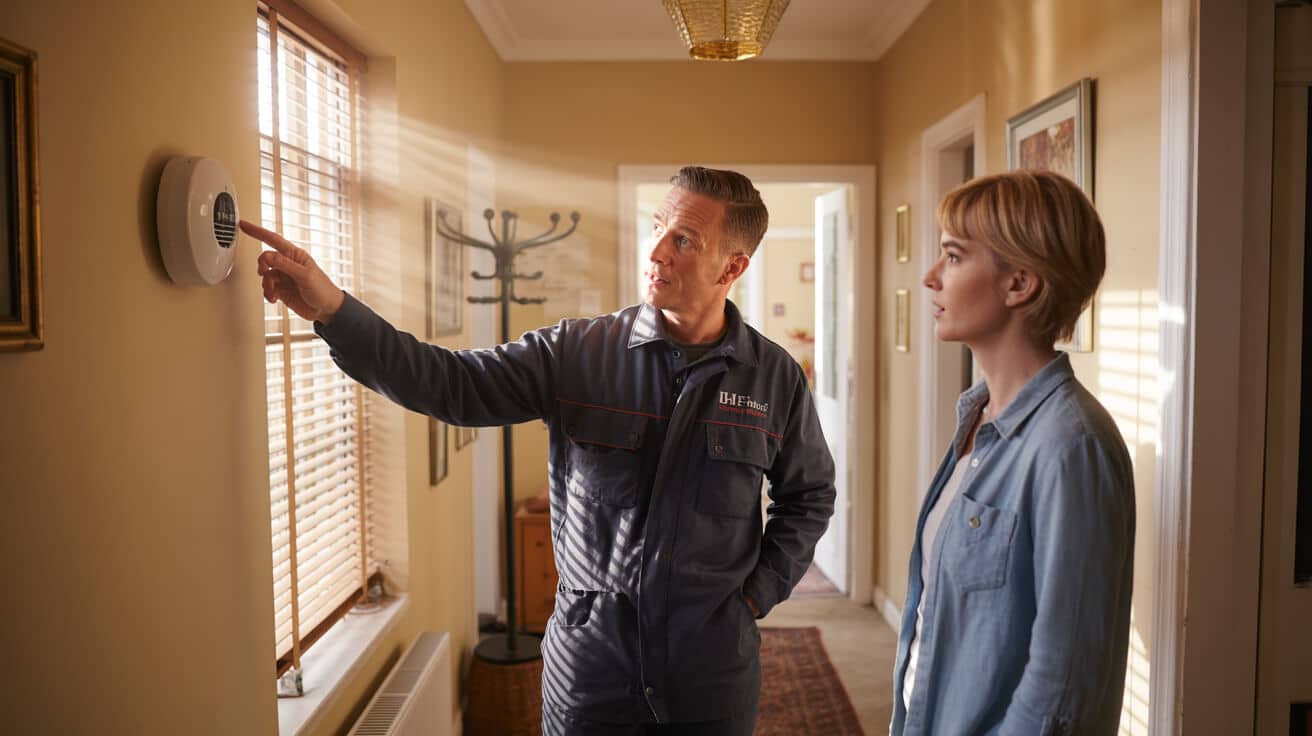
Engineering is about process, not just presence. For every inspection or repair—especially as properties become more complex—you want the reassurance of true credentials, transparent communication, and ironclad documentation.
Fast-Track Checklist: How to Verify a Real Gas Safe Professional
- Check every engineer’s Gas Safe ID: —every visit, not just once. Their photo, registration number, and *appliance-specific* authorisation must be clear.
- Cross-verify on the online register: —unregistered engineers still exist.
- Request full-service documentation: Date, appliance, serial, findings, engineer’s name, and signature. Insist on digital scans for your asset records.
- Prefer firms with higher compliance standards: Services like Plumbers 4U add WRAS/WaterSafe certification, before-and-after visuals, and compliance logs. This multi-layered documentation is invaluable if you’re ever asked to demonstrate diligence to regulators, tenants, buyers, or insurers.
For property portfolios or commercial buildings, select partners who schedule, document, and photographically log every check. When tenants or buyers raise concerns, having everything at your fingertips restores trust and ends disputes quickly.
Book Plumbers 4U: Where Compliance Meets Real Peace of Mind
Trust isn’t a matter of luck—it reflects the choices and diligence that set you apart from other owners, agents, or property professionals. Plumbers 4U brings together advanced diagnostic tools, WRAS and Gas Safe standards, and clear, jargon-free reporting to make gas safety stress-free and future-proof.
- Flexible, urgent or advance bookings: —suited to owner-occupiers, agents, block managers, or businesses
- Detailed job tracking: with digital and paper records—yours at the end of every visit
- Fully documented compliance: Gas Safe, WRAS, WaterSafe, and G3 credentials, for total confidence during sales, audits, or insurance queries
- Plain-English explanations: —you’ll know what was checked, why, and how to stay protected in-between
- Aftercare, reminders, and ongoing advice: —whether for a new let, landlord portfolio, or your home
No one ever regrets being able to quickly show their safety paperwork the moment it matters most. Book with Plumbers 4U today and sleep easy, knowing you’ve put every safeguard in place.
Frequently Asked Questions
Why do gas safety checks silence threats you can’t see or smell?
Every gas safety check acts as a silent sentry for your property—working 24/7 to block hazards you’ll almost never notice with your senses alone. Even the latest boilers or spotless kitchen stoves can develop slow leaks or invisible carbon monoxide risks, especially as joints, flues, and seals naturally degrade over time. Gas Safe inspections aren’t formality—they’re a deliberately sequenced protocol: checking flame patterns for purity, using calibrated gas leak sensors at every joint, confirming pressure stability, and examining that every vent is free-flowing. These steps reveal the silent failures—the ones that turn routine weeks into property loss, emergencies, or fatal oversight.
True peace is found in what never happens—a day saved from a threat you never meet.
What layers of safety does a professional check actually provide?
- Immediate detection of micro-leaks or poorly sealed connections before they spiral into catastrophe
- Assurance that combustion is clean, so CO isn’t wafting invisibly into bedrooms or living spaces
- A full audit of ventilation and flue performance to intercept dangerous backdrafts or chimney obstructions
- Signed documentation that both keeps insurers on side and satisfies every legislative demand
- Verification of all safety shutoff controls—so appliances actually protect you even when you’re not watching
With a fresh, accredited record, you’re not just covered by law; you’ve insulated your asset, your tenants, or your family from both regulatory headaches and worst-case scenarios that can take years to reverse. Miss this step, and all your other precautions—new appliances, fire alarms, even expensive insurance—may not mean a thing when it matters most.
What if an engineer finds a problem—how quickly can it be fixed?
A qualified team will diagnose on the spot and can usually resolve most issues in the same visit: leaking seals get replaced, faulty shutoff valves swapped, and blocked flues cleaned or flagged for urgent follow-up. The process is transparent—every defect and remedy logged with part codes, so follow-up or warranty claims are seamless.
How often must landlords, agents, and homeowners in the UK schedule gas safety checks?
By law, every rented residence, commercial let, or HMO in the UK needs a new Gas Safe check every 12 months without exception. For homeowners, skipping is technically voluntary—until mortgage or insurance terms mandate it, or warranty fine-print quietly voids after a single missed interval. New builds and brand-new appliance instals aren’t exempt: they require checks one year post-commissioning, and any time there’s a major system repair or equipment swap.
You can’t insure hesitation: a missing certificate blocks future sales, mortgages, and claims before you’ve even warmed the pipes.
What about properties with communal plant rooms or shared systems?
Flats and blocks with communal boilers or hot water usually make the block manager or letting agent responsible for annual checks—every residence and every appliance, every year. If that’s missed, the consequences land on both the agent and individual owners. Enforcement is now robust: unannounced audits, tenant rent-withholding, and legal investigations are all on the table.
Table: Who must book and store annual checks?
| Property Type | Required? | Documentation Needed |
|---|---|---|
| Owner-Occupied Home | Strongly Advised | Gas Safety Record |
| Rented Residential | Legal Mandate | Landlord CP12 Certificate |
| Commercial Premises | Legal Mandate | Gas Safety Record |
| Managed Block (Flats) | Manager/Agent | Shared Plant CP12/Records |
Miss a deadline and the risks are harsh: not only fines and invalid insurance, but the chilling reality of trying to sell a property with a missing compliance trail.
Who actually qualifies to certify your gas system, and how do you separate genuine engineers from “cheap fixers”?
Only Gas Safe registered engineers—with active credentials for each appliance in your system—are permitted to touch, check, or sign off gas works in the UK. The real professionals arrive carrying a yellow Gas Safe ID card: photo, renewal date, and a breakdown of what appliances they’re licenced to certify. Boiler-only? Fires? Water heaters or commercial cookers? The permission codes are clearly marked, and no one card covers everything unless specifically trained.
A real engineer expects questions and welcomes inspection—hesitation is a signal, not a courtesy.
How do you verify your engineer in 90 seconds?
- Request their Gas Safe card and study the appliance authorizations, not just their company name
- Confirm the expiry date is in the future, not last month’s renewal
- Cross-reference the credentials on the Gas Safe Register website (live checks) using their number
- Document the engineer’s licence in your safety record folder (digital and printed) for future warranty or insurance claims
Never accept “I’ve been doing this for years” or unverifiable referrals—the financial and legal stakes are too high. Landlords, letting agents, and property managers face prosecution and loss of letting rights if caught using unqualified labour, even if no accident occurs.
What happens if you use an unlicensed or incorrectly scoped engineer?
Work is deemed illegal, insurance coverage evaporates, asset values drop, and if an incident follows, both civil and (for landlords) criminal penalties are enforced. This isn’t theoretical risk—the government pursues enforcement actively.
What unseen dangers mount up when gas safety checks are delayed, skipped, or “DIY’d”?
Every missed or skipped gas safety check lets risk build up invisibly—pipe joints can relax or corrode, CO can accumulate behind closed doors, and even quiet leaks can spread through shared walls. Carbon monoxide in particular is silent, has no odour, and symptoms masquerade as winter flu: headaches, drowsiness, confusion. Nationwide, fire and rescue services attribute hundreds of emergencies each year to unchecked, poorly serviced systems—many of these avoidable with a timely inspection.
Risk is patient—it doesn’t advertise itself until you’re forced to call insurance, an ambulance, or building control.
What are the actual consequences of neglect?
- Severe CO poisoning: Even brief exposure to unconsciousness triggers hospitalisation or long-term neurological damage
- Property loss or fire: Explosive gas buildup doesn’t always warn in time—recent incidents push claims into six- and seven-figure losses
- Criminal exposure for landlords: If a tenant is harmed due to negligence, the law mandates prosecution regardless of insurance or mitigating factors
- Invalid real estate transactions: Surveyors and legal teams now demand compliant, traceable safety records before allowing sales or remortgages to proceed
Which warning signs demand instant, expert intervention?
- Persistent headaches or unexplained fatigue in residents or tenants
- Yellow-tipped, flickering flames on cookers or fires (clean burn is always blue)
- Soot stains, condensation streaks, or sudden “damp” odours near appliances
- A CO alarm going off, even if “faint” or “glitchy”—treat as an emergency
If you encounter these, power down the appliance, ventilate the area, and make a classified, credentialed call immediately. No delay is trivial when lives are on the line.
How should you document and archive gas safety records for absolute protection and fast audits?
A true gas safety visit ends with a fully completed, signed record: either a Gas Safety Certificate (homeowner) or CP12 (landlords, block managers). This isn’t a fridge magnet, email receipt, or boiler sticker—it’s a multi-point, traceable form containing engineer credentials, check scope, fixtures validated, outcomes, and a renewal calendar. Store the document both physically and digitally. If the paperwork disappears, your compliance does too.
What must every certified gas safety record detail?
- Full property address and the exact check date
- Manufacturer, model, and serial number of each appliance evaluated
- Individual pass/fail status, plus any maintenance actions or mandated deadlines
- Gas Safe registration details—engineer’s number, photo, issuing firm
- Signatures and compliance statements with full regulatory reference
Letting agents, building control, and insurers verify these forms before acceptance—claim, renewal, or tenant key handover. Properties without immediate documentary readiness face delays, enforcement notices, or halted transactions.
Table: Key gas certificate inclusions and their protection value
| Record Element | Stakeholder Protection |
|---|---|
| Full Address/Date | Binds certification to asset |
| Appliance List | Proves total system was checked |
| Engineer Credentials | Legal and insurance traceability |
| Pass/Repair Actions | Mandates necessary compliance |
| Certificate Expiry | Triggers re-check before lapse |
Digital backup matters: forward certificates to asset managers or solicitors so audits or resale moments aren’t derailed.
What’s the difference between a routine gas check and a full annual service, and does it affect compliance and warranty?
A routine gas safety check inspects for immediate functional hazards: is every burner safe? Is the pressure correct? Are shut-offs and vents working right now? But a proper annual service is deeper—combing through internal components for degraded seals, cleaning deposits, checking burner calibration, and projecting maintenance schedules with manufacturer-grade logs.
Annual service is what most modern warranties actually require. Many reported breakdowns or denied claims stem from having only the minimum safety check when a logbook-tracked annual service was stipulated. For property managers and those wanting the best performance, pairing both exams at once keeps everything legal, insurable, and running at maximum efficiency.
Table: Safety Check vs. Service—why get both?
| Feature | Gas Safety Check | Annual Service |
|---|---|---|
| Checks for hazards | ✓ | ✓ |
| Calibrates performance | – | ✓ |
| Cleans internal system | – | ✓ |
| Assures legal compliance | ✓ | ✓ |
| Primes warranty claim | Partial | Full |
| Prevents early failure | – | ✓ |
| Schedules next check | ✓ | ✓ |
Real protection comes from both: minimum box-ticking and deep, forward-looking maintenance.
Homeowners, landlords, and building managers often roll both into a single annual appointment for less admin and better value. Plumbers 4U coordinates all post-visit reminders so you never miss a renewal.
How do Hector Gauge and Plumbers 4U deliver “zero-worry” gas safety for your asset, tenants, or portfolio?
Plumbers 4U, with Hector Gauge at the helm, guarantees a gas safety process built on transparency and engineering skill—not shortcuts or vague promises. Each engineer is fully accredited (WRAS, G3, Gas Safe), arrives with verifiable credentials, and walks you through both checks and results in plain-language, client-first style. After every visit:
- You get a digital and paper safety record (CP12 or equivalent) ready for audit, insurer, or mortgage provider
- Before-and-after photos, as well as test readings, are appended to your file
- Repair or upgrade actions—if needed—come with part numbers, costed plans, and stepwise logic so you understand exactly what’s being recommended
- For emergencies, the team provides instant isolation, system triage, and urgent issue remediation, with all log entries timestamped for compliance
You’ll never chase a certificate or lesson in appliance safety—everything arrives organised, explained, and engineered for your ownership peace of mind.
Booking with Plumbers 4U transforms safety from a regulatory chore to a source of operational pride. Your certificate signals to tenants, buyers, or auditors that you don’t accept “good enough”—you set the standard for property protection in your market. Become the benchmark others follow: schedule with Plumbers 4U and Hector Gauge, and give your compliance, reputation, and value the upgrade they deserve.

